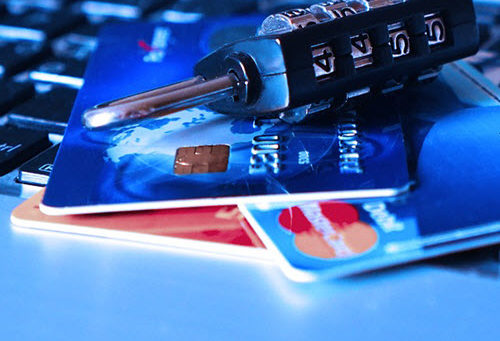
10 Ways to Prevent Identity Theft
Every year, millions of Americans are victims of identity theft.
Once a criminal has access to your personal information such as your social security number, they can make financial transactions under your name.
Victims not only suffer financial loss, but it can take years to correct the damage to their credit.
Safeguarding your personal information is more important than ever. Criminals are always thinking of new ways to scam you.
Here are ten ways to protect yourself.
1. Safeguard Your Social Security Number
Only provide it when necessary, and don’t carry your social security card with you. Once a criminal knows your social security number, they can easily gain access to other personal information.
2. Collect Your Mail Daily
Thieves won’t hesitate to snatch mail right out of your mailbox or off your front porch.
Uncollected mail also tips burglars off to an empty house. If you’re going out of town, have the post office hold your mail until you return.
3. Watch Your Surroundings
Watch out for identity thieves when you are in public. “Shoulder surfers” will watch as someone enters their PIN number at an ATM or into the keypad at a check-out counter.
4. Check Your Financial Accounts
Check your financial statements regularly for any unusual activity. This tip will help you spot identity theft as soon as it begins.
5. Safeguard Your Online Account
Install anti-virus software and create strong, complex passwords. Use a different password for every account, and be sure to change them regularly.
6. Lock Your Car
Never leave personal information on the seat of your car. Criminals peer through car windows looking for things worthy of stealing. Lock information in the glove box or trunk, or take it inside your home.
7. Sign Up for Identity Protection
Sign up for identity protection, which will alert you to any unusual activity on your accounts. If you’re in the military, you can sign up for active duty alerts through the Federal Trade Commission, which requires businesses to verify your identity before granting credit in your name.
8. Shred Personal Information
Shred personal information such as receipts, financial statements and credit card offers.
Thieves rummage through trash cans looking for information they can glean for their personal use.
9. Store Personal Items
Don’t leave personal information lying around your home in plain view. If a burglar breaks into your home, they can easily grab this information and run.
Store important documents in a safe place such as a fire-proof safe and install a security system to stop criminals in their tracks.
10. Check Your Credit
Order your free credit report online at annualcreditreport.com. If you see any suspicious activity, file a report with the police and contact the three credit reporting agencies.
If you’ve ever had your identity stolen, you know it can be a real headache to secure your personal and financial information. Take measures to avoid becoming a thief’s next victim.
How Do Thieves Get My Information, Anyway?!
There are hundreds of ways criminals gain access to personal information, and these methods are continuously evolving.
Here are a few popular methods:
- Stealing wallets, purses, mail and other items that contain personal information
- Buying your personal information from inside sources
- Gaining access to confidential information through their job
- Scamming through email phishing and telemarketing calls
- Tapping into your Internet via an unsecured connection
Let us ensure your home is safe and secure! Contact us a 281-506-8466 or visit us online!

